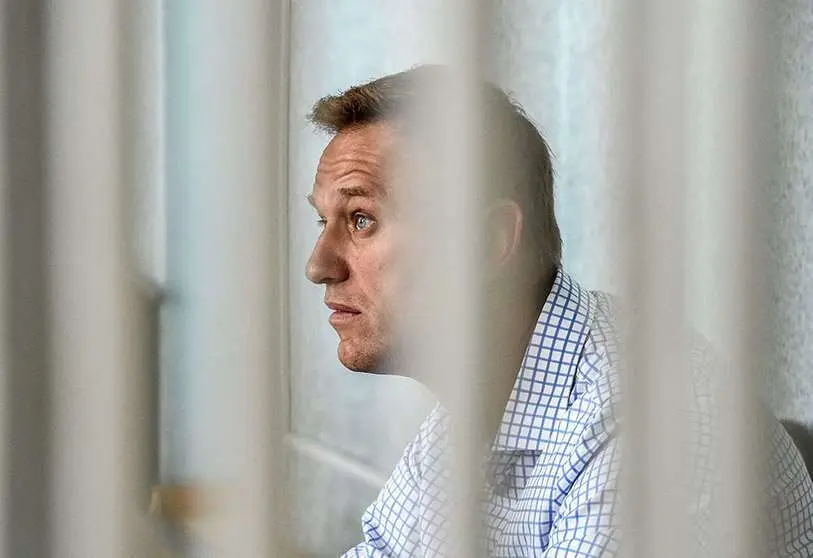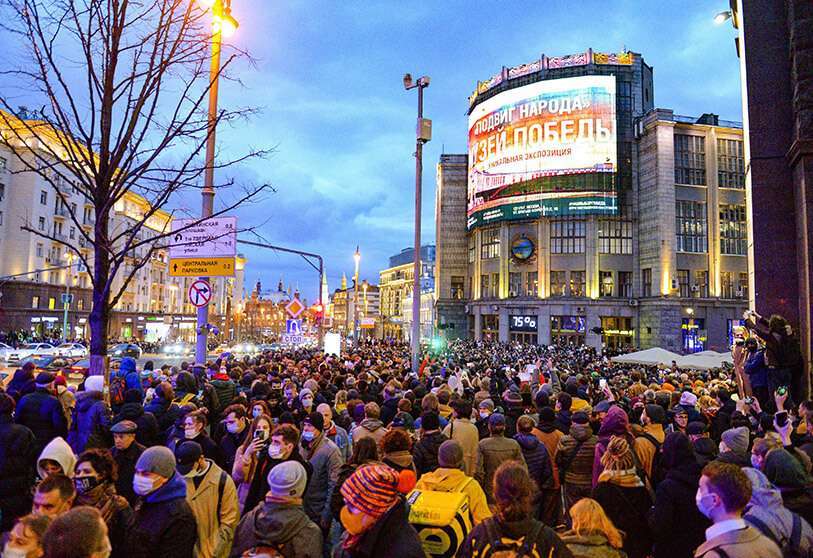Russia bans Navalny's organisations as "extremist"

The Moscow City Court on Wednesday declared the Anti-Corruption Foundation (FBK) and the political movement linked to dissident Alexei Navalny as "extremist". The ruling bans the activities of both organisations on Russian soil and disqualifies their leaders from running for public office for the next five years.
The prosecutor's office claims that both platforms are engaged in "creating conditions for social and political destabilisation" of the country, and that they not only deliberately disseminate "information inciting hatred and hostility against public representatives", but also commit extremist crimes and misdemeanours through "the guise of liberal slogans".
The judge did not accept any of the defence's objections and handed down the verdict after a trial lasting more than 12 hours behind closed doors. The authorities did not allow journalists to attend because of the existence of classified documents in the case file. The lawyers for the Anti-Corruption Foundation, who were denied food and water during the trial, have 10 days to appeal the court's ruling.

"The decision must be implemented immediately in terms of suspending the activities of these organisations," Russian news agency Sputnik reported. The order has entered into force, making the FBK members liable to criminal prosecution under Article 282.2 of the Russian Criminal Code, which contains the offences of creation and participation in an extremist organisation.
Those accused of having links to one of Navalny's platforms could face up to six years in prison. For its part, the Russian judiciary is prosecuting anyone who financially supports them with 8-year sentences for violating Article 282.3 of the Criminal Code, which contains penalties for financing extremist activities.
The prohibitions include the display of symbols of both platforms, including products containing the image of the FBK logo. In any case, the ruling of the Moscow City Court cannot be retroactive, so in principle there should be no consequences for those who have been linked to the FBK before.

The Russian judiciary recognised this organisation as a foreign agent in 2019, while on 16 April, the Prosecutor's Office requested the recognition of the FBK and Navalny's political platform as "extremist organisations". For this reason, the formation decided to dissolve its 40 regional headquarters at the end of April to avoid any future prosecution of its workers.
Among the groups on the list of "extremist organisations" in Russia are Daesh, Al Qaeda, the Taliban and various neo-Nazi groups. "Putin has rewritten the Constitution for himself, all the articles on civil rights have started to be interpreted as a joke, and yet we are the extremists," said FBK researcher Georgy Alburov.
The inclusion of both platforms breaks the dynamics of the list. "We are not a name, not a role, not an office. We are a group of people who unite and organise the citizens of Russia who are against corruption, for fair courts and equality of all before the law," Navalny said after learning of the court's ruling.
The political organisation has sought to unify Russia's laminated opposition by calling for mass protests and exposing corruption cases linked to the Russian government and directly to Vladimir Putin. Behind the organisation "there are millions" of people, Navalny said, and as long as they are "we are not going anywhere".

Alexei Navalny is serving a sentence of two years and eight months in prison in the town of Pokrov, located in the Vladimir region, near the capital. The authorities arrested him on 17 January at Sheremetyevo airport after he diverted his plane from Berlin to Vnukovo airport, where his supporters were waiting for him.
The dissident had been undergoing six months of medical treatment in the German capital after being poisoned in Siberia with a nerve agent called Novichok at Putin's express request, according to Navalny himself, although the Kremlin denied his involvement. The attack left him in a coma and on the verge of death, yet he decided to return to Russia despite veiled threats to his life.
Once in Moscow, he was charged with violating parole terms related to a previous case, for which he was eventually jailed in February. Navalny's last public appearance was on Tuesday, when he appeared by telematic means at a court hearing after being returned to prison following a 24-day hunger strike, which has aggravated his precarious state of health.
The opposition figure began his political career as a blogger for LiveJournal more than a decade ago and from there built up an investigative unit against Kremlin activities, a network of regional headquarters and even a campaign strategy centre that sought to channel votes to political formations that could challenge Putin's United Russia party.
For its part, the Russian government has tried to portray Navalny as a tool of Western intelligence agencies working against political stability, and accuses him of violating the constitutional order by seeking a 'colour revolution', i.e. a change of system by illegal means.

The final blow to dissent came on Tuesday, when Russian President Vladimir Putin signed a new law preventing the founders, leaders or investors of extremist groups from running for political office for five years if they hold senior positions within the organisation, and three years if they are ordinary members.
This action prevents the participation of Russia's non-systemic democratic opposition in the upcoming parliamentary elections, scheduled for this September. Some of the members of Navalny's political platform aspired to run as independent candidates in the elections, such as the organisation's number two, Lybov Sobol.
Recent polls show a loss of support for the ruling United Russia party, which explains the authorities' crackdown. Following the Moscow court's ruling, the Russian president is facing harsh criticism from the international community just days before meeting his US counterpart, Joe Biden, in Genoa.










